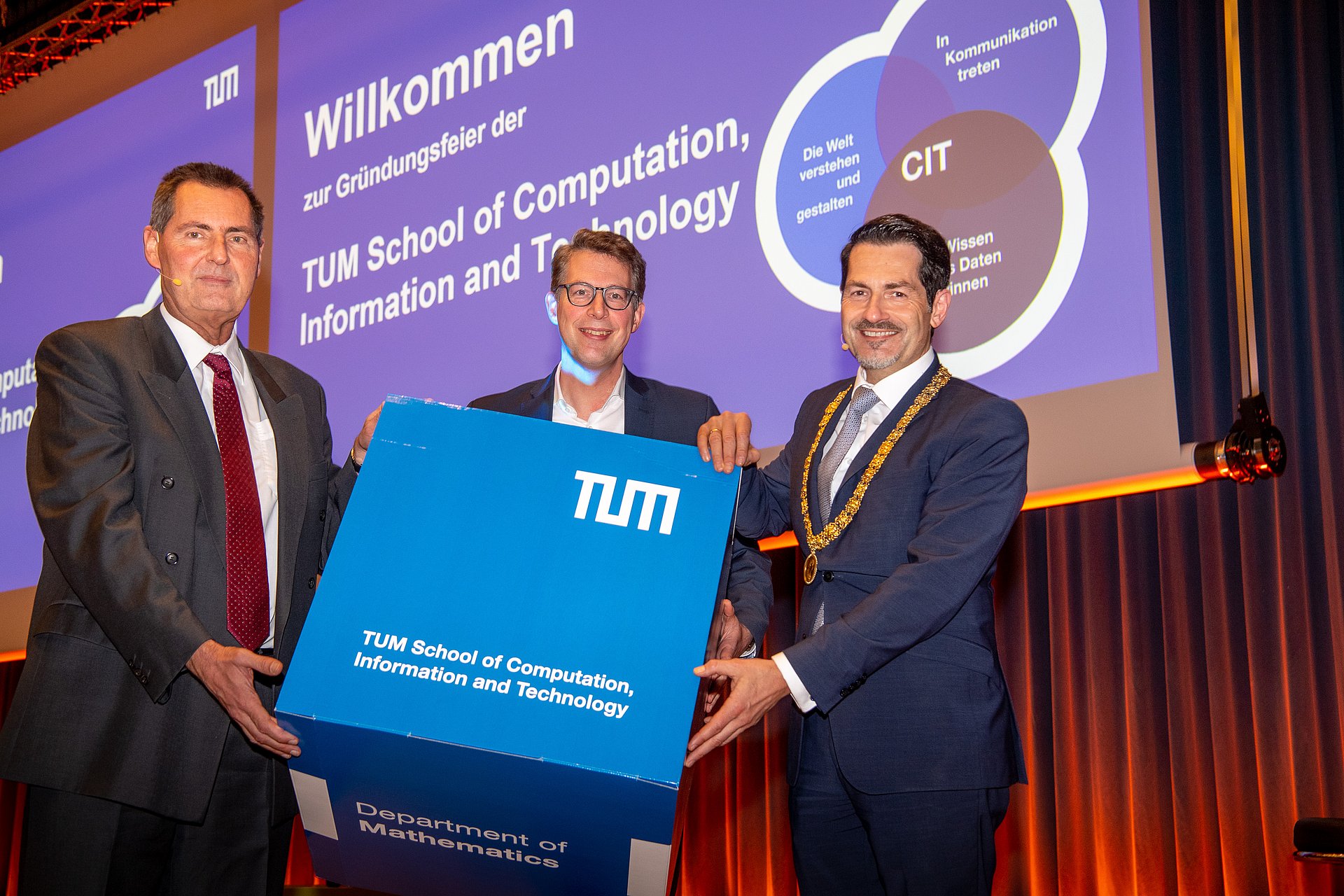As part of its TUM Agenda 2030 the Technical University of Munich (TUM) opened its TUM School of Computation, Information and Technology (CIT) with a gala ceremony. In organizational terms, the School unifies the disciplines Mathematics, Informatics, Electrical Engineering and Information Technologies and is intended to increase brand-building synergy potentials for an accelerated Digital Transformation.
 Andreas Heddergott / TUM
Andreas Heddergott / TUM Almost 140 professorships, over 1500 employees and 14,600 students, 53% of which are from abroad, make the new School an international high performance center for networked research and cross-cultural, future-oriented teaching. Supported by innovative governance structures, the School unifies the most important scientific, methodological and technological core competencies of digitalization. These include mathematics, statistics and algorithmics as well as software and Artificial Intelligence. The portfolio is rounded off with the scientific basics on electrical, electronic and quantum-electronic technologies, hardware engineering and system engineering.
The new School draws its power from its talented members, who have collectively achieved 10 Leibniz Prizes, 5 Alexander von Humboldt Professorships, a Bavarian Distinguished Professorship and 40 ERC grants. This illustrates the research power and scientific potentials which directly benefit the School's students.
The beginning of a new era
TUM President Prof. Thomas F. Hofmann said: "As we found the TUM School of Computation, Information and Technology, we are passing a decisive milestone in our transformation into a system-integrative university. Here we are transcending the constraints of individual subjects in traditional Faculties and are opening up new development potentials for our students, employees and collaboration partners with the joint objective of powering the progress of Digitalization as a technological revolution."
Bavarian Minister of Science and the Arts Markus Blume said: "A new era is being established here today: Almost 150 professors, a total of over 1,500 employees at three locations and more than 15,000 students are working at the new School of Computation, Information and Technology. With the CIT, TUM is bundling the concentrated excellence of its three successful faculties of mathematics, computer science, and electrical engineering and information technology - exactly the right mix to master the very great transformations of our time!"
The founding dean of the School, Prof. Hans-Joachim Bungartz, said: "The CIT brings together elements which fit together substantively. Thus for example we find all the core competencies of digitalization in the broadest sense together under a single roof. The CIT offers the broadest possible spectrum of competencies by consolidating the disciplines mathematics, informatics, electrical engineering and information technologies. Our research contributes to a better understanding of nature and of human beings. We work on the abstract representation, analysis, modeling and simulation of structures and processes. This makes our School a driving force in addressing many of today's major challenges."
Transformation of TUM
The TUM School of Computation, Information and Technology has been founded as part of the historical structural reform defined in the TUM AGENDA 2030 which includes the transition from Faculties to Schools. TUM is thus taking leave of the fragmented traditional faculty-based structure of German universities. The process will conclude with the founding of the TUM School of Medicine and Health, scheduled for October 2023. The TUM School of Computation, Information and Technology is the sixth of TUM's Schools: The TUM School of Life Sciences was founded in 2020, followed in 2021 by the TUM School of Engineering and Design, the TUM School of Social Sciences and Technology and the TUM School of Management. The TUM School of Natural Sciences has been in operation since 2022.






